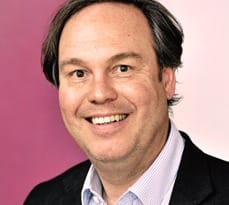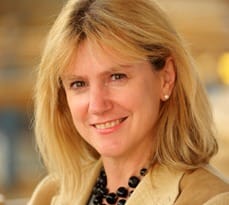When board-level execs go to business school the results are spectacular. CFO Simon Hoenderop explains.

Think you’re too senior for business school? Think again. The world is changing, and wise leaders know they need to change with it. We spoke to 53-year old Simon Hoenderop, CFO and board member of mushroom processing company C4C Holding (based in the Netherlands) who was part of the Advanced Leadership Programme at Cambridge Judge Business School in 2015, and Director of Open Programmes Allison Wheeler-Héau, about why there is always room to grow as a senior executive – however much you think you know.
- There’s a lot going on beyond the FT
You’re well-informed, naturally – about your sector and what’s going on in the world outside. You know about the trends. But there’s a big difference between reading about them from one point of view and learning about them from experts in the field and people who have actually lived it. “They really open your mind,” says C4C Holding’s Simon Hoenderop. “As part of the Advanced Leadership Programme (ALP) at Cambridge Judge we had an interesting discussion on 3D printing, for example. We were all aware that you can print small parts with it, but we learned about large companies who are taking the idea a lot further – using the technology to print parts for aircraft, for example. It’s not so much the printing but the fact that you produce things where you need them. 3D printers are everywhere in the world. This is a perfect example of the holistic approach.” - A new perspective is always valuable
Having an established network is undoubtedly a good thing: never moving beyond that network is not. A good executive education programme will bring people from different sectors together, allowing them to learn from each other: a typical ALP at Cambridge Judge will represent no less than 15 nationalities. “There were many different types of people on my programme, from different countries, backgrounds, and positions – CEOs, COOs and CIOs,” says Hoenderop. “And they were from many different companies, from oil to law to accountancy. Discussing your issues with people outside your sector can take you out of your routine. I like the intellectual challenge, and to be out of my comfort zone. Also, as you are not related, it gives you the freedom to share ideas.” - Rapid changes need new thinking
If you’ve been in the same sector for years, you’ll have a particular way of thinking about and doing things. That way might have worked years ago – but not now, in the age of rapid technological disruption and globalisation. “When many senior leaders come on the programme, they realise that, actually, they don’t have the best solutions for the challenges that are creeping in from China, for example, or from social media, or around cyber security,” says Wheeler-Héau. “Yet these are things which could potentially change their business model.” Hoenderop adds that it is not only the theory but also the application from the best teachers in the world that makes this interesting for executives. “I didn’t realise that business schools these days also ‘study’ the best way to apply theory and translate this into best practices,” he says. - Big decisions don’t have an age limit
Allison Wheeler-Héau Hoenderop came to Cambridge Judge with a decision to make: his company was about to split into two. Would he go with part A, or part B? Before the programme started, he had settled on B. After he had completed it, he went with A. “The programme forced me to open up and think about it: the holistic approach, is that really true, what’s behind this, why is this important – or why not? The whole programme helped me to make a balanced judgment, so there was a good outcome, and that outcome was different from what I expected when I went to Cambridge. There was a big difference in the two decisions and the programme helped me think about it. In the brochure Cambridge speaks about a life-changing opportunity and this experience underpins that.”
- Leadership never ends
Training tends to trail off the more senior you become, says Hoenderop. “You have to take care of the development of your staff – but nobody really looks after you,” he points out. “And if you are on the board of a mid-sized company, as I am, there is no executive training offered. I realised that the last significant training programme I did was 10 years ago.” Yet the skillset you require after five years of working life is very different from the one you’re likely to need when you’ve been working for 25 years – and experience won’t necessarily answer all your questions. “For example, the Cambridge ALP covers issues such as working with a team who are all experts in their particular field,” says Wheeler-Héau. “Managing them as individuals is one thing. Managing them as a team is quite another. Leading teams of high performers is a big issue. You don’t just tick that box and say: ‘I’ve done leadership, let’s move on’. Life is a learning journey. We always have to question ourselves, learn more about ourselves – we change but also the business changes and the people we work with change.” - The space to think
“I couldn’t remember the last time I had taken three weeks off work, away from home, without colleagues, my wife or kids, and invested purely in myself,” says Hoenderop. The more senior you become, the more responsibilities you have. Yet the demands on your time make it even harder to stand back and think about if you’re discharging those responsibilities in the right way. “Challenges and threats are things that senior leaders have to be thinking about – but because of the operational and strategic challenges that face them day-to-day, they don’t always have a chance to think about the wider view,” says Wheeler-Héau. “So it’s always good to step out and take a breath, and just have time and space to reflect on that.”



